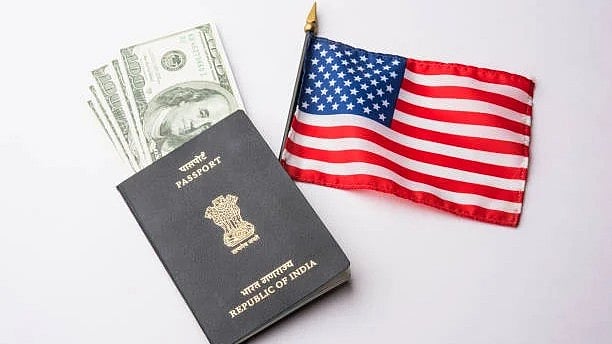
Image for representational purposes.
Credit: iStock Photo
By Mihir Sharma
Over the past year, relations between India and the US have reached their lowest point in decades, perhaps since the South Asian nation tested nuclear weapons in 1998. Here in New Delhi, the assumption — correct or not — is that this collapse is a product of Washington’s choices, and that President Donald Trump has chosen to single India out for harsh treatment.
What’s surprising is that he hasn’t received any pushback. Many officials in Washington have taken rhetoric about trade, tariffs and work visas even further than Trump has, without being contradicted by those more sympathetic to India, such as Secretary of State Marco Rubio.
But from New Delhi’s perspective, the absence of one set of voices is a particular shock: Indian-Americans. The large, wealthy, and influential diaspora has been completely silent as the relationship between their country of origin and their adoptive home has collapsed.
This is not how it was supposed to work. We thought the Indian-American community was our strength, a solid constituency that would be both an argument and an advocate for closer ties.
Official statements highlighted the importance of “people-to-people” links, and Prime Minister Narendra Modi has made a point of demonstrating his popularity with communities in the US and elsewhere. In 2019, he even arranged a joint rally with Trump in Houston.
But Modi’s Indian-American supporters, otherwise so vocal, are silent now, when the prime minister needs them the most. Even when H-1B visas — the instruments that enabled so many to enter American society — were being attacked by the administration, they did not protest.
Members of the US Congress made this very clear to their Indian counterparts on a recent visit to New Delhi. One reportedly said that her office “had not received a single call” asking her to speak up for India.
What explains their silence? In part, a new insecurity people of Indian origin feel in American society. Even fully-paid-up members of the MAGA movement like Vivek Ramaswamy were dismayed by the power of the pushback from ethno-nationalists when the subject of Indian immigration and H-1Bs came up last winter. The atmosphere in online right-wing spaces is certainly more hostile for South Asians than it was just a few years ago.
Or it might be because the administration’s measures against India fall well short of any existential threat to the country. Work visas, tariffs, and the occasional official condemnation aren’t anything as serious as the issues that have caused Ukrainian, Arab or Jewish communities in the US to mobilize, for example.
The simplest explanation, however, is that there’s nothing to explain. New Delhi was always too optimistic about what the diaspora could or would do for the home country. Indian-Americans in particular may not feel as attached to the motherland in any way other than through some family or religious ties — both of which which weaken as time goes on and generations pass.
Yes, they may receive an emotional boost when they are told that India or Indians are now global players — that’s a large part of why they greet Modi, a global celebrity, so enthusiastically. But they have no real stakes either in Indian growth or in the state of ties with the US.
They definitely have minimal investment in the economic relationship. Some in India have hoped that a more hostile environment to migration in the US means that those with talent will “return home” and move crucial sectors like IT up the value chain. The Reserve Bank of India, in its policy statement last week, made a point of opening up new ways for non-resident Indians to invest in the country.
Return migration is unlikely to happen. Most Indians in the US will instead want to move to somewhere like Canada, where Prime Minister Mark Carney has a made a pitch to those losing H-1B access to the US job market.
Nor will they invest in India. The difference between the Indian and some other influential diasporas has long been studied. China’s rise to power and prosperity was underwritten by the savings and effort of overseas Chinese. Our diaspora has not put in even a fraction of what theirs has.
Through their choices, and through their silence today, Indian-Americans have proved that they are Americans first and Indians not at all. There’s nothing wrong with that. In fact, it’s perhaps how it should be. India never had any real reason to expect anything from them, and and should stop doing so from now on.